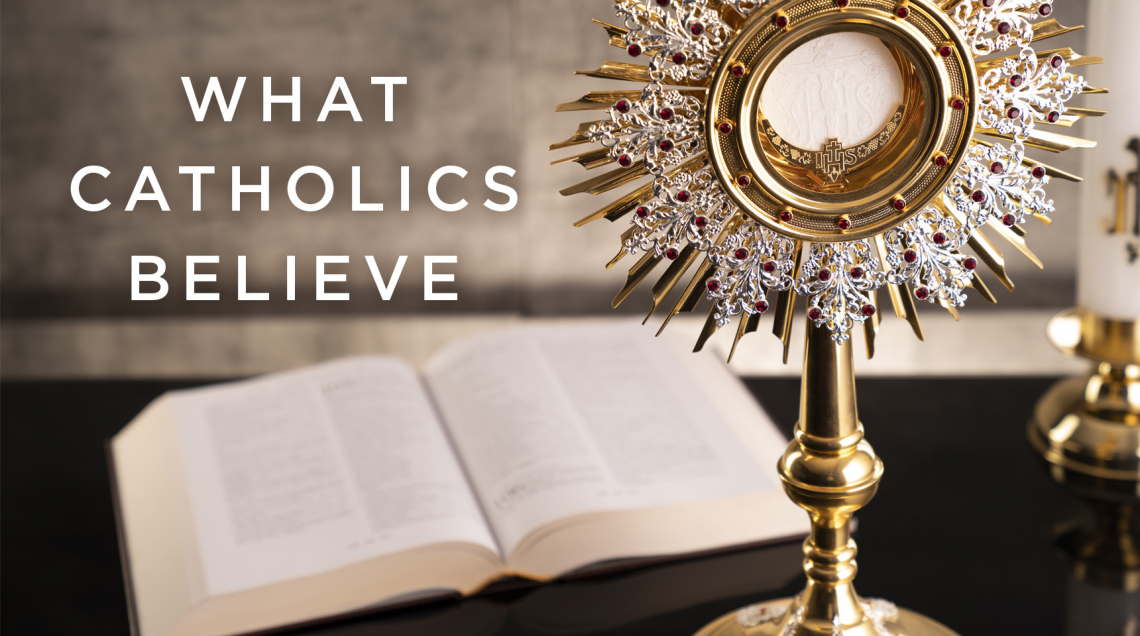The Mass: The Penitential Act and Sprinkling Rite

Mass begins with the Sign of the Cross and the greeting by the celebrant, “The Lord be with you.” Sometimes, the celebrant may then offer a few words to let everyone know that something out of the ordinary is taking place that day or to orient us to what we will hear in the Scriptures. More often than not, the priest simply proceeds immediately to introduce the penitential act, “Brother and sisters, let us acknowledge our sins and so prepare ourselves to celebrate the sacred mysteries.” Why is that?
Our participation in the Eucharist demands an examination of conscience from us. The highest form of participation at Mass is receiving holy Communion. But we need to be properly disposed to receive holy Communion. Anyone who is conscious in their conscience of having committed a grave sin, a serious sin, is meant to refrain from receiving holy Communion until he or she is able to confess to a priest and receive God’s forgiveness in the sacrament of reconciliation or confession. Even venial sins distance us from God; we should ask for God’s forgiveness whenever we can. In the sacrament of confession, God forgives the venial sins we intend to confess as well. But venial, or lesser, sins do not create an obstacle to receiving holy Communion like grave or serious sins do. So, at the beginning of Mass, we need to take a moment and determine for ourselves what our state of life before God actually is at that moment. We need to take the resolution to ask for his forgiveness and, if necessary, seek his absolution in confession before proceeding with holy Communion.
There are three forms to the penitential act at Mass. All three involve invoking Jesus Christ as God and asking for forgiveness from him, “Lord have mercy, Christ have mercy.” Sometimes, these invocations are sung, rather than simply recited. In one form of the penitential act, the priest or deacon addresses Jesus directly, “Lord Jesus, you came to gather the nations into God’s kingdom, Lord have mercy.” In a second form, we speak to each other, “I confess to Almighty God, and to you my brothers and sisters” (emphasis added). We ask each other to pray that God will forgive us the wrongs we have done by commission or omission. A third form, less well known, is a series of invocations and responses whereby we and the priest ask God for his forgiveness, “Have mercy on us O Lord, for we have sinned against you.” The concluding prayer by the priest is addressed to us, “May almighty God have mercy on us.” It expresses the confidence that God hears the prayers of those who repent of their sins and ask for his forgiveness.
The Rite of Sprinkling
On Sundays (including Masses on Saturday night), the rite of sprinkling with holy water can replace the penitential act. The priest will bless water and sprinkle it upon us as a reminder of our baptism. This ceremony functions in much the same way as the penitential act. It reminds us that God forgave all our sins, original and actual, in baptism. It reminds us that we are meant to live a life of holiness because we are sons and daughters of God. Therefore, we should reject everything that is contrary to that dignity. We should repent of the wrongs we have done against others or against God and live as His sons and daughter in reality and not just in name. The penitential side of the sprinkling rite is expressed in its concluding prayer, which is addressed by the priest to all of us, “May almighty God cleanse us of our sins, and through the celebration of this Eucharist make us worthy to share at the table of His kingdom.” Membership in the Church through baptism gives us the privilege of sharing the Eucharist but also the duty of living in harmony with our vocation to holiness.
Having acknowledged the truth of our state of life before God, we are ready to continue with the celebration of Mass. We give God thanks and praise for his forgiveness in the hymn “Glory to God in the highest.” The priest offers the first collect, or prayer of the Mass, before we listen to God speak to us in the readings.
Msgr. Marc Caron is moderator of the curia and vicar general for the Diocese of Portland










